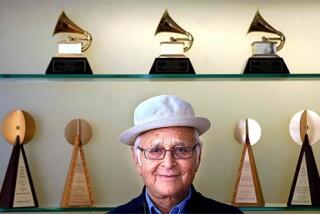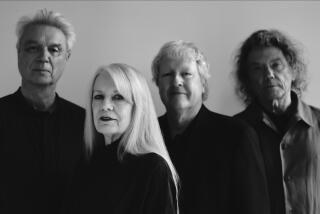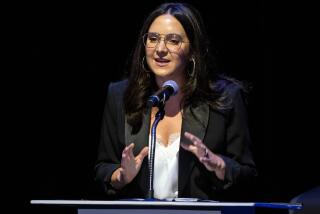Sneak Previews of Forthcoming Books of Special Interest to Southern Californians : Timothy Leary in 1968 : ‘Turn on . . . tune in . . . drop out.’
- Share via
IN 1966, THE hippie movement was flowering into a national phenomenon. It started to receive national attention on Jan. 14, 1967, when Allen Ginsberg, antiwar activist Jerry Rubin and LSD advocate Timothy Leary joined 20,000 others in a Gathering of the Tribes in San Francisco’s Golden Gate Park. A press release issued a few days earlier promised that “political activists” would join together with “the love generation” to “powwow, celebrate and prophesy the epoch of liberation, love, peace, compassion, and unity of mankind.” Leary was at the Human Be-In to promote the value of LSD, while Rubin hoped to convert the culturally alienated into standard-bearers for a new political revolution.
Leary had been at Harvard until the university accused him in 1963 of carrying out dangerous experiments on undergraduates; then he was fired. At the be-in, his speech was received much more enthusiastically than Rubin’s strident attack on the war. Although explicitly denied the “prophet status” that would have permitted him to speak for a half-hour, Leary made the most of the seven minutes allotted to him. Dressed in white pajamas, he welcomed his audience “to the first manifestation of the Brave New World.” Then he made his much-quoted proposal: “Turn on to the scene. Tune into what is happening and drop out--of high school, college, and grad school, junior executive, senior executive--and follow me, the hard way.”
Copyright 1988 by Charles Kaiser. Reprinted by arrangement of Weidenfeld & Nicolson.
More to Read
Sign up for our Book Club newsletter
Get the latest news, events and more from the Los Angeles Times Book Club, and help us get L.A. reading and talking.
You may occasionally receive promotional content from the Los Angeles Times.








